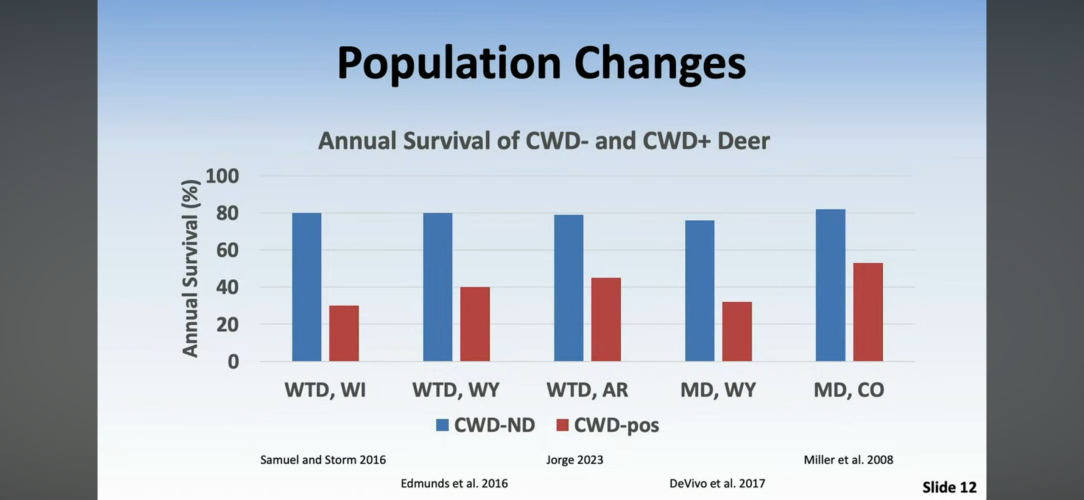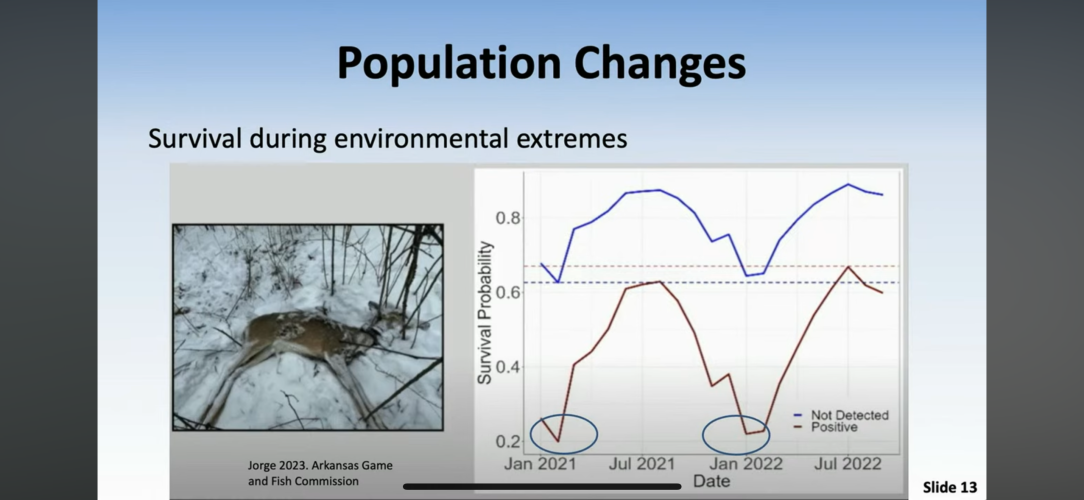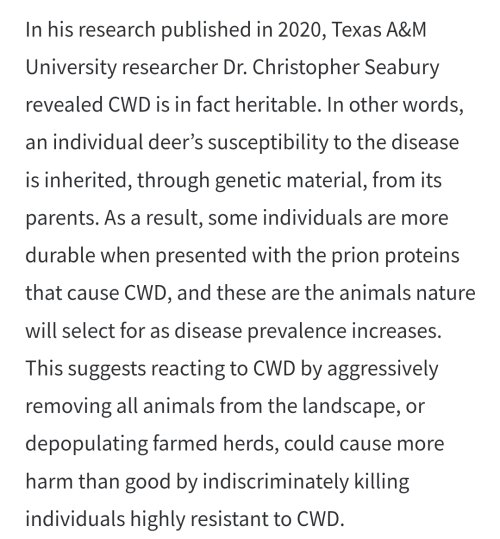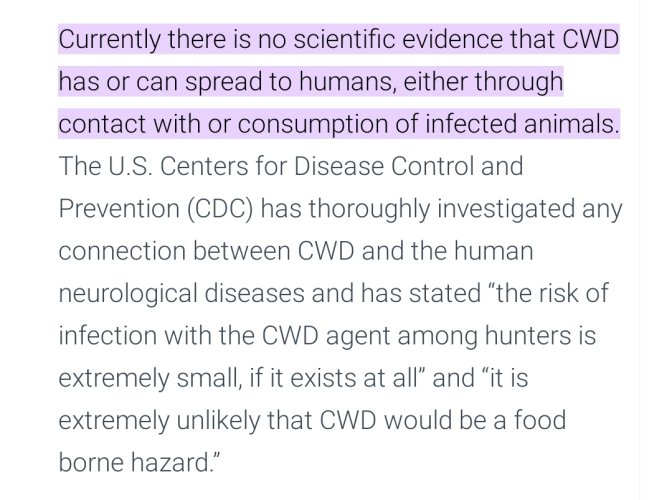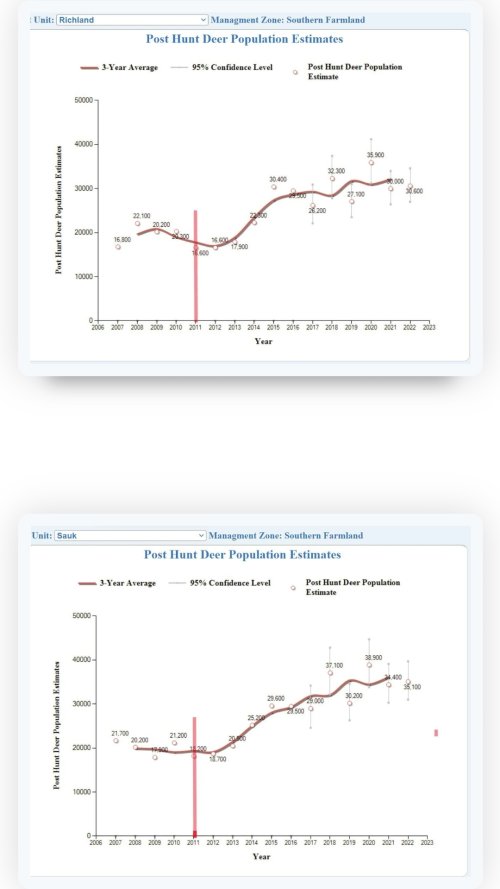WildWill
Well-known member
I'll never understand the"lets kill them all to save them" mentality. More deer herds have been destroyed by wildlife departments in the name of cwd then by the actual disease with very little to show for it.At least they aren’t being like some midwestern states and having extra CWD tags with virtually limitless free tags in CWD zones.




